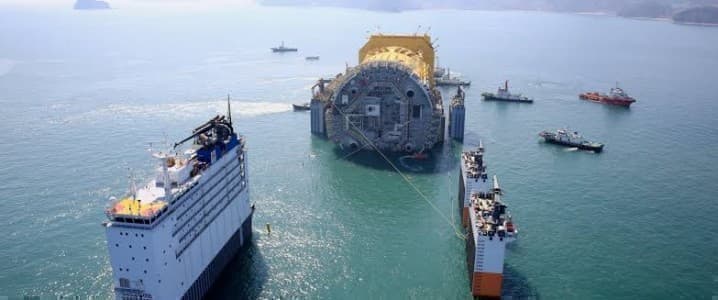Norway appears to remain firmly committed to its oil and gas operations despite leading the green transition. Norway has long used almost entirely renewable energy to power its domestic consumption, yet it is still one of the world’s biggest producers of oil and gas for export. Considering that revenues from its fossil fuel operations have helped it amass huge wealth, in the form of the country’s sovereign wealth fund, it’s no wonder Norway is dedicated to oil and gas. But as one of the forerunners in the green transition, with ambitious climate targets, can being an oil and gas producer as well as a massive proponent of renewable energy really align?
Norway is an energy-rich country, with vast oil and gas resources in the North Sea, as well as hydropower and wind sources. This has allowed it to develop its vast fossil fuel revenues for reinvestment in economic diversification, including the development of its green energy projects. In 2020, Norway exported 87 percent of its energy production, and was the seventh-largest natural gas exporter in the world, providing 3 percent of the world’s gas. It also supplied 2.3 percent of the world’s oil in 2020. At the domestic level, its hydropower production covered 92 percent of its national demand. The country has reinvested its oil and gas earnings into green projects in recent years, particularly in national infrastructure, meaning it now has a high level of electrification. Electricity provides almost half of the country’s total final consumption (TFC), the highest share of International Energy Agency (IEA) member countries. Related: Today’s Election In Alberta Could Shape Canada’s Climate Policies For Years
With an already strong renewable energy industry and a high level of electrification, Norway could be one of the leaders of the global green transition, with the potential to lead the world on new technologies for decarbonising hard-to-abate sectors. For example, if the right policies and incentives are introduced, the uptake of electric vehicles (EVs), carbon capture and storage (CCS) technologies, and green hydrogen could be significant, according to the IEA.
Despite this progress, Norway remains heavily committed to its oil operations as a major source of revenue, while the global demand remains high. The Norwegian government recently asked energy companies to increase their oil and gas exploration in remote areas, such as the Arctic Barents Sea, despite pressure from climate activists to curb its oil and gas activities. The support for greater exploration responds to the energy shortages of 2022, following the Russian invasion of Ukraine and subsequent sanctions on Russian oil and gas.
Norway overtook Russia as one of the largest natural gas suppliers to Europe last year and is looking to keep that place to ensure European energy security as well as reduce Russia’s role in Europe’s energy market. And its revenues have increased substantially, with the country earning around $131 billion in net income from petroleum in 2022, compared to $29 billion in 2021. To this end, Norway’s Petroleum and Energy Minister Terje Aasland reportedly stated that the industry should “leave no stone unturned” in the search for newhydrocarbon discoveries in the Barents Sea. The country’s biggest oil and gas company Equinor, as well as Vår Energi, a major exploration and production company, confirmed this call to action.
There are already several oil and gas fields in production and under development in the Norwegian continental shelf, after 50 years of successful operations in the region. However, it is estimated that much more undiscovered oil lies in the Arctic’s Barents Sea. Much of this region remains unexplored due to the high costs involved with new projects, as well as limited export opportunities. However, with the growing European demand for non-Russian gas, this could all change. And Norway is expected to offer a record number of oil and gas exploration blocks in the Arctic for companies to begin exploration.
Unsurprisingly, several environmental groups disagree with the move, calling on Norway to stop new exploration and further develop its renewable energy potential. Many organisations believe that Norway’s actions are going against its climate pledges and its role as a Paris Agreement signee. Frode Pleym, head of Greenpeace Norway said “Both Norway and the oil corporations need to stop cynically exploiting Russia’s war in Ukraine,”. Pleym explained, “The aggressive and greedy oil policy of Norway do not only consolidate Oslo’s position as a top energy supplier to Europe, it locks a whole continent into future dependency on fossil fuels. The alternative to oil and gas is not more oil and gas, it is more energy efficiency and renewable energy.”
Norway is the biggest hydropower nation in Europe, and its wind and floating offshore wind capacity is significant and ever-growing. It is also developing its floating solar resources and using direct heat in its cities. Several major Norwegian companies, such as Equinor, are investing heavily in renewable energy projects abroad to support the green transition and become global leaders in green energy. But despite the leaps and bounds taken in renewables, Norway simply refuses to leave its oil and gas potential unexplored. While this could help boost European energy security, it could also lead to a longer reliance on oil and gas than may be necessary.
By Felicity Bradstock for Oilprice.com
More Top Reads From Oilprice.com:
- Are We Nearing An Inflection Point For Oil?
- European Natural Gas Prices Drop To The Lowest Level Since 2021
- China Is Breaking Records As Its Solar Industry Booms


















